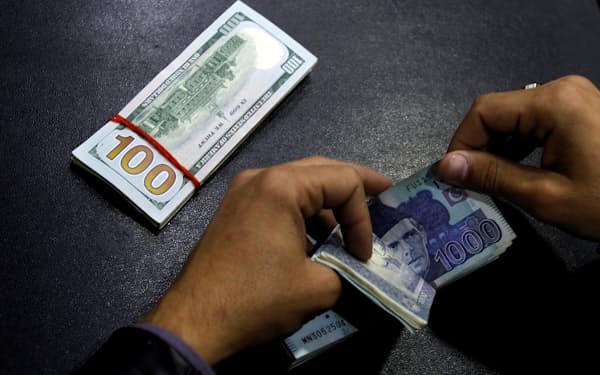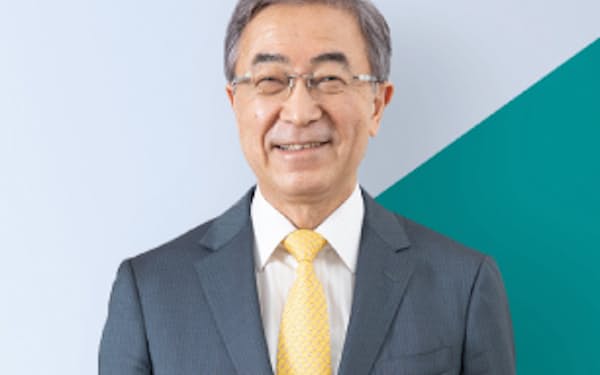Nikkei Asiaに「人権報道賞」 オンライン詐欺巡る報道で

国際人権団体ヒューマン・ライツ・ウオッチ(HRW)などは3日、アジアの優れた人権報道を表彰する「人権報道賞」の受賞作品を発表した。日本経済新聞社の英文媒体「Nikkei Asia」がアジアで暗躍するオンライン詐欺グループを巡る報道で、解説特集部門の最優秀賞を受賞した。
受賞したのは、2022年11月にドミニク・フォルダー・アソシエイトエディターが「アジアでオンライン詐欺が『感染爆発』」の見出しで報じた特集記事。新型コロナウイルス禍のなか、タイの若者が人身売買によりカンボジアを拠点とする中国人詐欺グループに加担させられ、決死の脱出劇を繰り広げる様子などを報じた。迫真のルポを豊富に盛り込み、写真や映像でビジュアルに伝えた。

人権報道賞は、HRWと米アリゾナ州立大のジャーナリズム教育機関ウォルター・クロンカイト・スクールが運営する。香港外国記者会(FCC)が四半世紀にわたり運営してきたが、報道機関に対する中国当局の圧力が強まったことを受け、22年は受賞作発表を直前になって中止。今年からHRWなどが引き継いだ。
今回の選考対象は22年に英語、中国語で報道された記事。ニュース部門ではアフガニスタンで抑圧に立ち向かう女性を報じたAFP通信の記事、調査部門ではミャンマーの少数民族ロヒンギャへの迫害を描いたロイター通信の記事が選ばれた。33カ国から406件の応募があった。
Nikkei Asiaの今回の受賞作品は3月、世界の経済ジャーナリストで構成する団体、米SABEW(ソサエティー・フォー・アドバンシング・ビジネス・エディティング・アンド・ライティング)の「第28回ベスト・イン・ビジネス・アワーズ」の国際報道部門でも最優秀賞を受賞している。
Asia's scamdemic: How COVID-19 supercharged online crime
Internet predators are often the prey in Thailand's lawless border zones
Three scammers sat in a room in Poipet, Cambodia, watching the drama unfold on screen. They had just tricked a man into transferring 235,000 baht (over 6,500 dollars), his life savings, to them.
Leading the scam was Kai (not his real name), a Thai teenager; next to him was his Chinese employer, and between them a Thai translator.
Kai was speaking to the Thai "customer" -- which is how scammers refer to their victims -- who was begging for the return of the money he had unwisely transferred to them as part of a supposed application for a larger loan. But the loan was fictional, and his money now belonged to Kai's boss. The Thai man needed it, he said, to pay for his sick mother's escalating hospital bills.
Desperate, the victim switched on his camera and pleaded. But Kai's employer was determined to humiliate him, in addition to taking his money. He told Kai to ridicule the man for being so gullible.
Suddenly, the man pulled out a pistol, and put it to his head. Blood and brain spattered the lens as the trio watched, stunned as they realized what had just happened. Kai promptly vomited. Suddenly, he wanted nothing more than to escape.
"That was the worst moment in my life," he told Nikkei Asia, after recounting the events of last November. "I wanted to go home -- I didn't want to see things like that."
But he couldn't just walk away. In Kai's industry, the predators are often also the prey. The four-story yellow building he was sitting in last November was just a few hundred meters from the Thai border. However, he could not go home. He was trapped.
In June 2021, Kai had crossed illegally into Cambodia to work on a gambling website he had seen advertised online. Poipet, his destination, was a gambling resort, a glitzy tsunami of concrete and neon that abuts the drab Thai border town of Aranyaprathet.
Before he knew it, Kai was trapped in an underworld of cyberslavery.
Held as a virtual prisoner and sold from employer to employer, the tools of Kai's trade were smartphones and desktop computers arranged in scam centers, along with a steady supply of Thai SIM cards.
He was forced to work long hours running frauds against people back in Thailand -- bilking them out of money by impersonating loan officers, policemen, even relatives online.
"I didn't want to scam people. I thought, 'What the hell is this?' I didn't want any part of it," Kai said from near a safe house in Bangkok following his rescue earlier this year. "I was also betrayed. The Chinese investor scammed me and sold me. I was traded by Thai people to Chinese investors."

Kai had become an unwilling foot soldier in a huge scamming industry that has swept across Southeast Asia in the wake of COVID-19 -- a "scamdemic."
Run largely by gangs from mainland China, Taiwan and Hong Kong, it has emerged from a toxic combination of unemployment, lockdown isolation, and unprecedented social media use.
The raw materials are people like Kai, trafficked scammers who answer bogus job ads and end up in loosely policed regions on Thailand's borders with Laos, Myanmar and Cambodia. Many are held against their will and then forced to buy back their freedom. Some are career scammers.
Those who refuse to scam can find themselves threatened with forced prostitution and online pornography, or work on fishing boats. The scammers themselves are duped by dreamy promises on social media of easy money and soft living in tough economic times. Their only way out is to dupe others in a massive scamming food chain.
Their unwitting victims, meanwhile, come from across the social and economic spectrum. A retired doctor in Bangkok lost 115 million baht (3.2 million dollars) when she clicked a bad link that accessed all her personal information and enabled a scammer to clear out her accounts.

Another elderly woman was cheated out of 100 million baht simply by failing to realize she was the victim of a hoax and not putting down her phone. A retired courtier was tricked into paying 150,000 baht to an account in northern Thailand by an online Lothario purporting to be an American in Singapore.
Thailand's National Economic and Social Development Council estimated in May that scam calls increased by 270% and fraudulent SMS messages by more than 50% in 2021. There were almost 50,000 official complaints lodged, twice as many as in 2020.
Increasingly, scamming is becoming a Pan-Asian problem with Malaysians, Taiwanese, mainland Chinese and Indonesians, among others, being smuggled into lawless border zones and running scams against their countrymen back home.
Thirty-five Malaysians, for example, were rescued along the Thailand-Myanmar border in the first six months of the year, and five more were detained in Mae Sot, Thailand, in late June. "The victims were given tasks as scammers to charm the targets, who are Chinese nationals overseas," Malaysian Ambassador to Thailand Jojie Samuel told reporters at the time.
In Singapore, residents lost over 630 million Singapore dollars ($468.85 million) to scams in 2021, 2.5 times more than the previous year, according to the police. Police say at least 90% of scams in Singapore originate from overseas and describe the scammers as "syndicated, well resourced and technologically sophisticated," The Straits Times reported.
Kai is a typical example of a victim. But he was fortunate. Essentially held as a prisoner for six months, he put everything he could into his escape plan. Through his mother, he eventually contacted a volunteer Thai rescue service, funded by Thai donors, that pays Cambodian guides to bring out trafficking victims.
Ekapop Lueangpreasert, who heads the rescue service and led Kai's extraction from captivity, said: "The victims are promised a big salary, and once they get there it is a different story. When they realize they have been trapped and want to go home, the Chinese side says, 'Well, we have paid to get you, so if you want to leave, you have to pay it back.'"
Moreover, Ekapop said, the gangs can act with impunity in the regions they control. "The scammers don't even take the phones away from their victims," he said, "because these gangsters are so confident that it is their territory that even if their victims have a phone, nobody can help. They are untouchable."
Kai's escape proved to be a terrifying ordeal. It took him two days to cover a distance that could be walked in 15 minutes as he hid from Cambodian army patrols, and eventually emerged from his night jungle ordeal into the arms of his mother.
He is now under police protection in Bangkok, but other returnees and escapees are less fortunate and face prosecution for immigration offenses or more serious alleged crimes.
"We can barely keep up"
Scamming has long been a problem in Asia and elsewhere, but it took COVID-19 to supercharge the phenomenon into a "scamdemic."
"Of course there was scamming before COVID," said Police Maj. Gen. Titawat Suriyachai, commander of Thailand's Cyber Crime Investigation Division 4. "Victims at that time were mainly housewives and older people. But with COVID, the scamming got a lot worse, and we could barely keep up. People had more free time, and were spending it on social media," he said.

Unemployment left many desperate, eager to answer obscure ads from Facebook offering work abroad that led into the clutches of scamming gangs. Another ingredient was locked-down populations -- psychologically isolated, vulnerable and surfing the internet -- who became unwitting targets for online tricksters.
With the shutdown of foreign travel, many casinos could no longer operate legitimately on the steady stream of foreign tourists, mainly Chinese, that used to arrive for junkets. They turned to online gambling instead. Many casinos, particularly those operating in the loosely policed regions just across the Thai borders in Myanmar and Cambodia, now operate mainly as scamming centers.
"Formerly the centers were in Thailand. If [the scammers] are in Thailand, we can arrest them," Titawat said. "They knew that, so they moved abroad to scam."
Speaking to Nikkei at a hotel on the northern outskirts of Bangkok, Titawat unfolded a chart showing in extraordinary detail an East Asian scamming gang that his officers are on the verge of arresting. Mug shots, ID cards, bank accounts, transactions -- a spider web of criminal details collated over many months.
With unusual candor toward the foreign media for a Thai policeman, Titawat talked of "SIM boxes" that can run 32 mobile phone numbers and lax regulations that once allowed the purchase of 400 SIM card numbers by a single buyer. He referred to "horses" -- people who open bank accounts to sell on to "investors" -- as the gangsters running the scamming industry are often called.
Another of Titawat's charts laid out the technical aspects of the cyberscams. In the bottom left corner are Thailand's three main mobile providers -- AIS, DTAC and True Corp. In the bottom right corner, every retail bank in Thailand is listed.
Scammers need access to the internet, and Thailand's state-of-the-art telecommunications networks are part of the scamming equation, he said. "Call center scams use telephones from True, DTAC and AIS," he said.
Indeed, gleaming new cell towers have sprung up in Thai border areas opposite suspected scamming sites in Laos and Myanmar, particularly along the Moei River.
Asked by Nikkei to explain their anti-scamming policies and the locations of cell towers near scamming sites, DTAC was the most responsive, saying all three companies have cell towers around Thailand with normal roaming capabilities. It cooperates with the National Broadcasting and Telecommunications Commission and the police to promote scam awareness. AIS either declined to answer questions or referred Nikkei to its annual report. True could not be reached.
Thailand's NBCT said it has stepped up monitoring and introduced limits on SIM card sales to five per operator. It has also introduced a new +697 prefix to alert receivers to likely scam calls. The main approach however is what police call "cyber vaccination" -- a massive public education campaign.
Sovereignty for sale
Scamming is increasingly focused in Southeast Asia's special economic zones, created to attract legitimate investment to blighted and underdeveloped border regions. Once viewed as engines of regional economic growth, today these SEZs have found their niche as havens for loosely regulated casinos and gambling tourism.

More than that, they have become centers of criminality and gangs, said Jeremy Douglas, the regional representative in Bangkok of the United Nations Office on Drugs and Crime (UNODC).
"It is almost like sovereignty for sale -- [governments] are literally selling a chunk of their country," he said. "There are certain jurisdictions in the region that are morphing into little criminal enclaves with diversified revenue streams."
Already two such enclaves have been targeted by international law enforcement. In August, Thai police arrested She Zhijiang, a businessman who is influential in the Shwe Kokko special economic zone, situated on the Myanmar side of the Thai border. She Zhijiang has been on the run from the Chinese authorities since 2012, while Thai police have charged him with running an illegal online casino.
Another enclave is a virtual state within a state across the Mekong River in Laos. The Golden Triangle special economic zone is a haven for drug trafficking, human trafficking, money laundering, bribery and wildlife trafficking, according to the U.S. Treasury Department. The department four years ago placed sanctions on the man it says runs the enclave: a Chinese citizen named Zhao Wei.

The UNODC's Douglas says his agency became increasingly aware of the overlap between online gaming, scams, fraud, human trafficking, pornography and live sex streaming. Unlike narcotics, this heady cocktail of vice needs only the internet for delivery and payments.
"Our concern is that this could rival the drug business," Douglas said. "The drug trade here is largely regional, but the online space is globalized, so you can technically run from these autonomous zones and hit customers around the world. We know people in other parts of the world are getting hit for gambling, but the fraud is not far behind. The potential reach is alarming."
Police for hire
On a recent Saturday morning, Chayapisit (not his real name), the manager of a small film company, was struggling through thick Bangkok traffic when a call came through. He answered without looking.
The caller identified herself as a customs officer. She said a package mailed overseas from Ranong, a southern province, in Chayapisit's name had been intercepted and contained methamphetamine, bank books and ATM cards. A warrant for Chayapisit's arrest was to be served that afternoon. Would he like to speak to the police officer in charge?
The policeman came on the line and asked Chayapisit to confirm his full name, ID card number and address. The policeman then asked for his ID on the chat app Line to video call.
His Line app flashed up a picture of what appeared to be a Ranong police station. Chayapisit then saw a policeman in uniform. The policeman peered at Chayapisit and compared him to the ID card. Chayapisit did not doubt for a moment that the officer was genuine, and during the 45 minutes never had time to consider something might be amiss.
As Chayapisit contemplated his possible arrest, the policeman turned friendly. He said it was quite possible he was innocent, but they would need to check his bank accounts for possible transfers to other suspects.
Chayapisit agreed to flush his two accounts to a bank account supplied on Line that would be refunded after the "check" in 20 minutes. He was given a Thai Farmers bank account in a private name. That was the last he saw of more than 83,000 baht.
At Chayapisit's local police station, the desk sergeant was able to complete the story almost as soon as Chayapisit began relating it. "Don't you read the Thai news?" he laughed. "Didn't you notice the police station was much too smart and clean to be one of ours?"
Scamming ground zero
Such police scams are sometimes done with real -- former -- policemen. In one eight-story building Kai had worked at in Poipet, the fourth floor contained two mocked-up Thai police stations, a fake public prosecutor's office and a Department of Special Investigation office, Kai recalled.

Two of the policemen involved in online scamming are former Thai police officers, nicknamed Ton and Nat, both in their late 30s, Kai said. They still have their uniforms, equipment and all the right jargon. Kai's job on that scam was to put the first call into a Thai scam target.
"They knew about the law, using all this legal speak and police speak," Kai recalled. "They were real police doing it deliberately; they had quit the force."
Police Col. Jirawat Sasriwattana, superintendent of the police station at Laem Chabang, Thailand's main port, told Nikkei: "People are startled and shocked that it is the police when they get calls. Because of that, they comply without thinking. It is an authority figure."
Jirawat continued: "Sometimes they will call you on Line [the chat app], and use an official police logo to make it look like a police site. They get pictures of policemen from interviews. Some use AI to move the policeman's mouth."
Cambodia has become ground zero for the scamming industry in mainland Southeast Asia. With China cracking down on gambling and casino junkets, Chinese gambling investment moved from Macao and Taiwan into Southeast Asia.
That flow was initially channelled into Cambodia, particularly Sihanoukville, and other SEZs. "In Cambodia, you have seen the Chinese underworld explode out of control," said Jason Tower of the United States Institute of Peace.
Already in 2019, the situation in Cambodia had gotten so bad that the Chinese government tried to strong-arm the country into banning online gambling, with mixed results.
Pol. Maj. Siriwish Chantechasitkul -- who leads the human trafficking crimes bureau at the Department of Special Investigation in Thailand's Ministry of Justice -- told Nikkei that 1,000 Thais are confirmed as having been trafficked into and held in Cambodia as of August, but admitted there are probably more. As many as 100 different scamming sites could be involved, he added.
Siriwish's caseload for trafficking-related scams has mushroomed, and now represents more than 50% of the cases his unit handles. Siriwish said COVID-19 boosted scamming because so many people became desperate for work and vulnerable, particularly in the decimated hospitality industry.
Gen. Surachate Hakparn, Thailand's deputy police chief with overall responsibility for the war on trafficking, recently told reporters in Bangkok that 3,000 Thais might be trapped in Cambodia but efforts to retrieve them have sometimes been thwarted, possibly due to complicit authorities.
Surachate said he and a team of police spent eight days in late spring this year unsuccessfully trying to extract a group of Thais held in a building in Sihanoukville. "We knew which buildings they were in, and what floors they were located on," he told reporters in Bangkok.
But negotiations with Cambodian authorities broke down after the Thais were moved from three floors in a particular building up to three higher floors to which he was denied access.
"Cooperation is essential or else we will not be able to eradicate these call centers," Surachate said, obliquely referring to the Cambodian authorities. By his own account, he was negotiating with gangsters rather than the police. He added that eventually 30 Thais were freed after he threatened to publicize the matter.
A river of crime
The situation is even more serious in Myanmar and Laos, where many areas are completely beyond the reach of what little law enforcement exists.

One example is Shwe Kokko in Myanmar, also known as Yatai New City, which is in an area controlled by former Karen ethnic insurgents who have brokered business and security arrangements with the military. The key border towns of Tachileik and Myawaddy remain under the control of Myanmar's 21-month-old military regime.
However, the region has one thing going for it: superb telecommunications infrastructure, courtesy of Thailand. On the other side of the Thai-Myanmar border opposite Shwe Kokko, at least 16 cell towers, mostly planted in verdant corn fields, face out of the country toward the casino citadel across the Moei River. Reception is 4 bars of 5G, better than in many parts of Bangkok's central business district.
Chinese businessman She Zhijiang, the SEZ's highest profile backer, reportedly set up gambling networks in Cambodia, Myanmar and the Philippines, before being arrested in August for running an illegal casino. She, 40, was born in China's Hunan province but holds a Cambodian passport.

In August, an official from Myanmar Yatai International Holding Group Co., which is developing Shwe Kokko, was quoted in a local newspaper saying of She's arrest: "It won't have any impact on Shwe Kokko. He may be arrested for his activities in other countries." Nikkei's emails and calls to the company went unanswered.
Shwe Kokko is a major destination for human trafficking, according to Malaysian politician Sim Chon Siang, who hails from the opposition People's Justice Party and has helped more than 50 Malaysian scam victims.
At a September news conference organized in Kuala Lumpur to publicize the issue of trafficking, Sim was quoted in a number of media saying that Shwe Kokko is "like a maze" with 20 blocks of buildings, based on victim and source accounts. He said each block has 52 rooms, with up to eight people crammed in one room.
Shwe Kokko was also the unintended destination of Goi Zhen Feng, a 23-year-old Malaysian, who went to Bangkok in January to meet a woman he had only contacted online and who he described as his girlfriend, his father Goi Chee Kong told the news conference.
Goi said he believed Zhen Feng was taken to KK Park, a casino complex not far southeast of Myawaddy on the Myanmar side of the Moei River, to work for companies engaged in online scams, before he was later found dead. The family discovered Zhen Feng had died in May under a fake name in a Thai hospital in Mae Sot, across the river from the Myanmar complex.
He was hospitalized in intensive care for a month and his cause of death was reported to be an infection in his heart and lungs, Goi said.
"We are slowly accepting the reality that my son is dead," Goi told the news conference. "We hope the government will rescue all the victims in Myanmar and Cambodia."
"Effectively, the whole Moei has become a river of criminality," Jason Tower of the United States Institute of Peace told Nikkei. "You are seeing increasing numbers of people being duped into crossing over, and, once they are there, being held for ransom. From what I hear, even if you pay, the chances of getting someone out are not all that high."
The not-so Golden Triangle
The infamous Kings Romans Casino in the Golden Triangle SEZ in Bokeo province, Laos, sits directly across the Mekong from sleepy Chiang Saen in Thailand's northernmost province of Chiang Rai, flashing laser beams into the jungle night sky.
Visitors would see men with earphones at card tables talking to gamblers back in mainland China. Due to COVID restrictions on travel, proxies sit in and play poker and baccarat on behalf of gamblers in China by talking to them and showing cards on camera.

But underneath the glitzy exterior is a seedy underbelly. Zhao Wei, who runs the casino, is responsible for "an array of horrendous illicit activities," according to the United States Treasury Department, much of which is facilitated through the gaudy casino.
In 2018, Sigal Mandelker, then-Treasury Under Secretary for Terrorism and Financial Intelligence, explained the decision to freeze the assets of Zhao and some associates, saying he runs a "transnational criminal organization, which stretches from the Kings Romans Casino in Laos throughout Southeast Asia."
King's Romans Casino did not answer a call seeking comment on the sanctions, which remain in place according to the Treasury Department website.

The GTSEZ is registered in Hong Kong, according to its own website, but the Lao government is a significant stakeholder. Continuing U.S. sanctions did not prevent Laotian Prime Minister Phankham Viphavanh from visiting the GTSEZ and Kings Romans Casino on Aug. 4, flying in on a Russian-made helicopter.
He will soon be able to land at a new, almost completed airport, which is large enough for B737s and A320s.
The airport aims to welcome mainland Chinese gamblers and other foreign travelers once COVID-19 travel bans are lifted, circumventing the immigration limitations of the nearby Chiang Rai Airport in Thailand.
The whole region flourishes as a haven of criminality. Local news agencies have identified at least three locations used by scamming gangs in nearby Tachileik.
Widening the net
Although the "scamdemic" continues to spread, regional governments are now taking it more seriously. At a recent ASEANAPOL meeting in Kuala Lumpur that brought together regional police chiefs, the hosts expressed concern about the number of Malaysians being trafficked to scam in Cambodia and Myanmar.
More qualified Malaysians are particular targets because of their proficiency in Mandarin, which is helpful for scamming the wider Chinese diaspora when mainland Chinese are not available. Many Malaysians are also Anglophone, which opens up English-speaking parts of the world.
In early August, Indonesian Foreign Minister Retno Marsudi met with Cambodian National Police Chief Neth Savoeun to gather information about Indonesians trapped in scams. She also met 62 of her nationals rescued from compounds in Sihanoukville.
In recent months, 11 Indians, 44 Pakistanis and 24 nationals of several African countries -- mostly Kenya -- have been rescued from Laos.
How many more foreigners are trapped against their will on the wrong side of Thailand's borders is a matter of speculation. The fear is that the longstanding problem of scams in Asia has become an even more destructive force.
"We don't yet have a real sense of what the scale of this is, particularly now that there are so many of these zones that people could be trafficked into," Tower told Nikkei. "With the global economic downturn and the volume of advertisements that are being posted online, we are talking about thousands, tens of thousands at this point."











